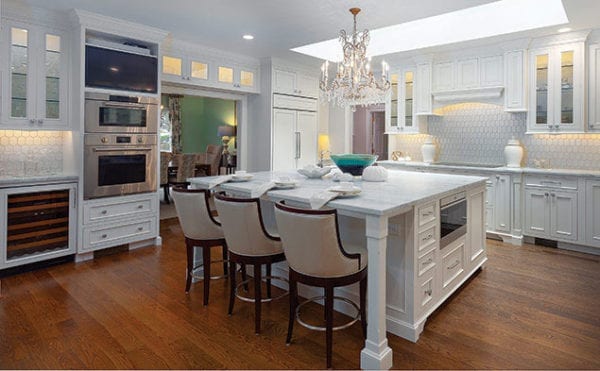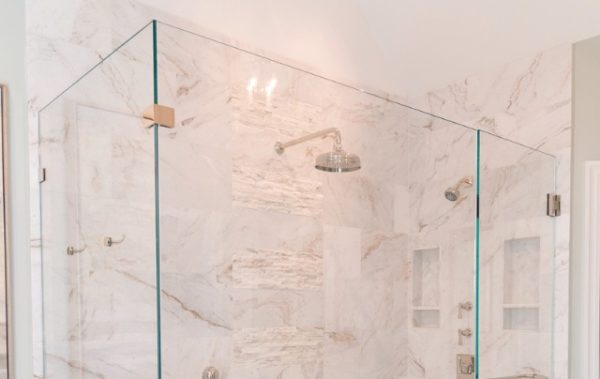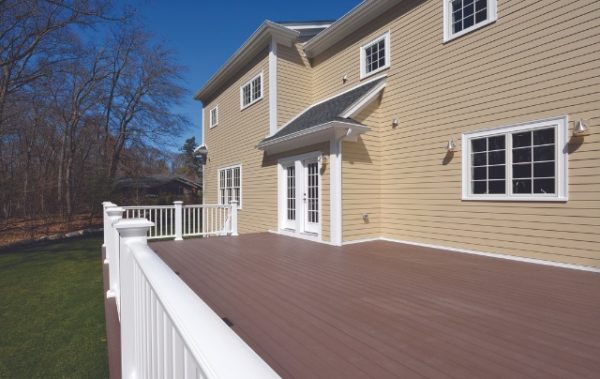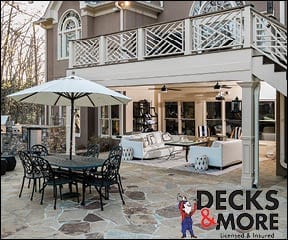Expert advice on saving for your spruce-ups

With the recent downturn in the housing market, it is important to be both smart and creative when considering your financing options. Here are some helpful tips on budgeting for your home improvements.
Plan ahead.
“It’s really important to do your homework before making a decision,” says Edward J. Johnson III from the Better Business Bureau. “You should read and understand all parts of the contract and be aware of what exactly you’re financing and how it’s being financed.”
Work with a pro.
A pro will make you aware of all finance options that are available so you can make the best possible decision regarding the project.
Leverage the equity in your home.
Home equity loans are still among the most popular tools for financing home improvements. Since the loan is secured by a tangible asset (your home), you’re more likely to get a favorable APR (annualized percentage rate) than if you financed a project through an unsecured personal loan.
Consider construction-perm loans.
This lending tool involves the execution of a loan at the end of the project’s construction phase, at which point a “construction” loan is refinanced into a conventional home mortgage. With this type of loan, no matter what happens, you’ll always have a program and rate locked in.
Use retirement investments (401(k)s, IRAs) only as a last resort.
Avoid using assets that are already earmarked for retirement. Tapping tax-advantaged accounts such as 401(k)s and IRAs may seem like a creative approach, but ultimately it’s a move fraught with danger and tax consequences.
did you know?
• It is a good idea to secure your loan prior to contracting with a home-improvement company. By doing this, you will know in advance what your budget is for the project.
• If you can’t summon the capital to complete the project through conventional means, it’s best to reevaluate the timing of your project.
know your numbers
• Remodeling activity is expected to increase 44 percent from 2008 to 2015, that’s about 3.8 percent per year.
• Mid-range versions of projects now pay off better for homeowners than upscale versions in most cases, and replacement projects currently provide a better return on average than discretionary improvements.
—Harvard University’s Joint Center for Housing Studies
protect yourself
• Hire an experienced remodeler, not a professional who is remodeling only until the building industry picks up again.
• Contact state or local licensing agencies to ensure your contractor and the planned project meets all requirements.
• Check with your local NARI chapter, the government Consumer Affairs Office of the Better Business Bureau to ensure the absence of any adverse files on record for the contractor.
• Thoroughly read and understand your contract with the remodeler.
• Ask to see a copy of the contractor’s certificate of insurance or for the name of his or her insurance agency to verify coverage.
—National Association of the Remodeling Industry (NARI)

2022 Parade of Homes

A Labor of Love

Tips for creating and maintaining a beautiful garden for August 2011

Award-Winning Kitchens, Baths, Interior Design and More

Atlanta’s NKBA Designs of Distinction 2019 Winners

100 Things to Know Before You Remodel

What’s the simplest way to upgrade your window treatments?







